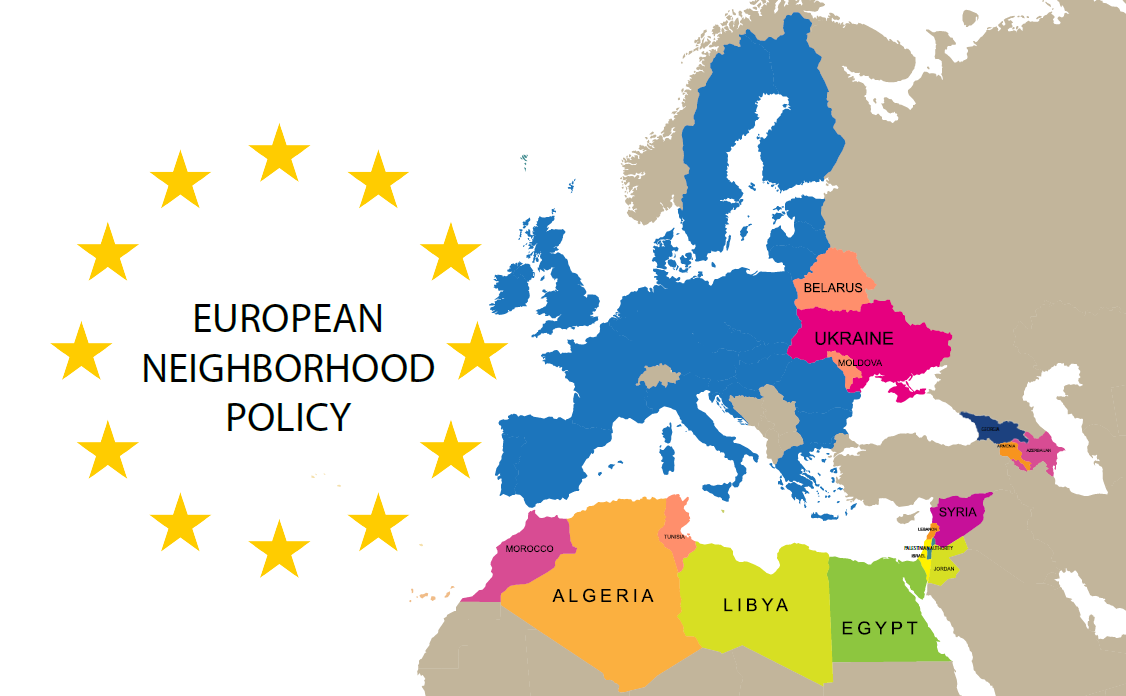Outlined in March 2003, and launched in May 2004 by the European Union’s Commision, the European Neighborhood Policy (ENP), is one of the EU’s most ambitious foreign affairs projects. This policy and project strives for diplomatic, economic, and social cooperation between the EU and its 16 closest neighboring states from the eastern and southern borders. Why is this an important policy?
ENP’s focus is not only on beneficial cooperation for the European Union’s sake, but rather an equally favorable program for the partner country. ENP focuses on stabilization in the political and socio-economic sense, with hopes to lead to good governance, just and inclusive society, a secure environment, and a prosperous environment for human development of citizens. The EU can execute these goals through the European Neighborhood Instrument (ENPI) which allocates financial resources; between 2014-2020 the ENI has allocated over €15 billion.
In order to achieve common goals, the EU and partner countries set an action plan, with a minimum duration of 3 years which may be extended upon consent, and set clear goals and priorities for action. These action plans are individual and unique to each country, which makes it easier to implement as it does not necessarily affect a different country in a different situation. These action plans are drawn up based on two principles: common ownership and commitment to common values. The common ownership is executed through the tailoring process of the action plan which makes it individual, and the values include democracy, the rule of law, good governance and respect for human rights, and to the principles of market economy, free trade and sustainable development, as well as poverty reduction.
In the east, the ENP partner countries are Armenia, Azerbaijan, Belarus, Georgia, Moldova, and Ukraine. The primary focus in the last two years within the region has been COVID-19 recovery and deepening of economic and political ties through concrete steps. An example of work done within the Eastern Partnership programme is in Ukraine, which has recently become an EU member candidate. The Association Agreement, including the Deep and Comprehensive Free Trade Area, has triggered a reconstruction of the Ukrainian legal framework which makes it more similar to the EU one, and easier trade with the EU and within Ukraine. Similar specific agreements and actions are being taken with the rest of the neighboring countries in the region.
The southern neighbors include Algeria, Egypt, Israel, Jordan, Lebanon, Libya, Morocco, Palestine, Syria, and Tunisia. Within this region, due to a turbulent climate, much of the ENPs work includes financial aid and stabilizing work. For example financial aid to the Syrian population following the start of the Syrian civil war, or the allocation of funds toward the pipelines in the Gas for Gaza project. For a more unified region, the ENP also works with the Union for the Mediterranean which allows for discussion and integration between the member mediterranean countries and the European Union member countries.
Though the ENP project is ambitious and wide-reaching, it is a helpful tool not only for the EU’s diplomatic gain, but also a great opportunity for partner countries. The action plans range from financial aid to closer economic integration.
